 Casper Grathwohl, Senior Vice President – Group Strategy, Oxford University Press, in his conversation with Ruhi Ahuja Dhingra, talks about Oxford Educate and how it will teach the educators a better way of imparting learning in the classroom
Casper Grathwohl, Senior Vice President – Group Strategy, Oxford University Press, in his conversation with Ruhi Ahuja Dhingra, talks about Oxford Educate and how it will teach the educators a better way of imparting learning in the classroom
Please tell us about Oxford Educate.
Digital materials have been around in the classroom for quite some time in India. There are quite a few technology companies in the market fighting to provide these services, but the content is not good or is not relevant. I read a study that said that only 20-30 percent of the digital material that is purchased by the schools is actually used. Oxford Educate has been our response to that – digital materials that can make a difference in the classroom, something that teachers want to use to enhance children’s
learning.
What is special about Oxford Educate is that it is much more than just a course book in digital form: you can page through it and click on different elements with animation and readings. In the English Language Teaching courses, you can read poems and hear them in the original language. You can also see videos and print documents.
Oxford Educate gives all the tools to teachers that they need to teach a course more effectively. In the past, digital products were offered as supplements, but they did not offer help in teaching the course. The material that publishers have been offering since the last couple of years when the entered the space, has better content but is not a part of the course. That is what makes Oxford Educate special. Also, it is free and other publishers either charge extra if you purchase the CD with the digital materials along with the book. But we are offering the material for free not only because we are committed to education and want to see students perform better and help teachers, but also because we think our products will do better and more people will use them because the digital material we are providing is effective.
What is your view of the adoption of the digital medium in India?
There is a huge difference between the range of schools in the market. The private high-end schools in tier-1 cities are very different from those in tier-3 cities that do not have a lot of money. The challenge with digital in a place like India is that it is not happening uniformly across schools. The digital revolution is at different points on a scale at the same time. Therefore, you cannot come up with a solution for your ideal classroom and expect the educators to be able to implement it.
My view is that the gap is closing partly because technology is becoming less expensive. Tablets used to be so expensive but they will get lower to a point where if not everyone, but at least the next layer down of students will have access to these materials. That is going to make a huge difference. As of now, everything is print-based while technology sits as a supplement. But when real change happens, technology, digital and print will be blended together in a way that one does not drive the other. Right now, print drives digital.
Students are more tech savvy as compared to teachers. How do you think that gap can be bridged?
To be fair, Oxford Educate will not bridge that gap fully. Young people are excited by technology in ways that some of us who are older are not. But because Oxford Educate is very simple to use: you can turn pages just the way you do on an e-Reader or when you are on the web, there will hopefully be no gap between a teacher’s and a student’s understanding about the programme.
The challenge outside of Oxford Educate is Indian teachers need better technology training and this training will soon be the key to a long-term successful Indian education system that is growing so rapidly. Technology evolves so quickly and young people are always going to be on the edge of where we are going. So teachers have to learn to adapt to this.
Will Oxford Educate serve as an aid to the teachers?
Today’s students are as sophisticated with digital at the age of seven or eight years as teachers are and that is very intimidating. This makes the teachers think that digital makes their job harder and that they cannot do anything that is more difficult or that they are not comfortable with.
When we developed Oxford Educate, we talked not to just digitally-savvy teachers, but also those who do not use digital to find out what they need to get more comfortable and make things more interactive for students. Even the teachers who are less comfortable with digital will find that it works just like how they use their Facebook or shop online. Oxford Educate’s CDs are very intuitive and easy to use. That is why they will work.
The cost of tablets will soon come down to a point where if not everyone, but at least the next layer down of students will have access to digital materials. That is going to make a huge difference
Oxford Educate has been designed to help teachers use the course material. A teacher can read out a poem to the class. He can also have that poem on the screen with an audio sounding like Shakespeare. This way, students will learn as they pay attention to the story that is being told. What a better way to learn! Oxford Educate will help teachers because it is too much of a task for teachers to do it without any support right now.
In how many countries have you launched Oxford Educate?
India is the first. We developed this specifically for the Indian market and did the research here. Digital education is taking off in India and we thought this is time when we could make a difference.
What are your plans for the Indian market?
Right now, Oxford Educate accompanies 13 courses across all subject areas. Courses like English Language Learning, Computer Science, Mathematics and Science will be launched now and teachers will receive CD-ROMs. Our website also has tips on how to use the CDs, contact information and best practices.
Our plan is to have teachers use this. We have trained all of our 130 teacher trainers to help teachers if they need any assistance. We will gather all the feedback and update Oxford Educate every year so that it has new features and more content. It is very important to stay close to the classroom and learn and keep updating it. We probably will not be perfect at it at first but we will try to remain nimble so that we can constantly keep up with what teachers need. And we think that if we publish a new course and make it available every year, we will be improving the programme.
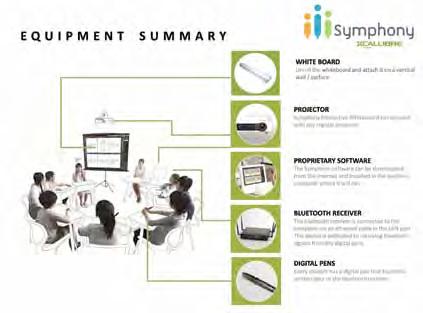 By Jaivardhan Varshney
By Jaivardhan Varshney






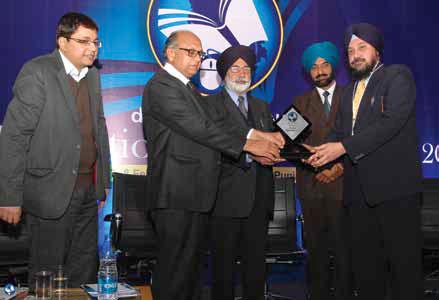 One of the biggest challenges of the 21st century is to bridge the digital divide that exists in the world population. Most new technological inventions and gadgets are primarily focused on the developed first-world populations which have the purchasing power for such innovations and services. Billions of people are still without access to Internet, which is now being considered a human
One of the biggest challenges of the 21st century is to bridge the digital divide that exists in the world population. Most new technological inventions and gadgets are primarily focused on the developed first-world populations which have the purchasing power for such innovations and services. Billions of people are still without access to Internet, which is now being considered a human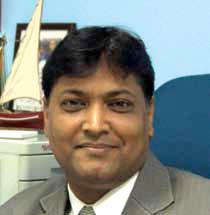 By Anil Goyal, Director, Mexus Education
By Anil Goyal, Director, Mexus Education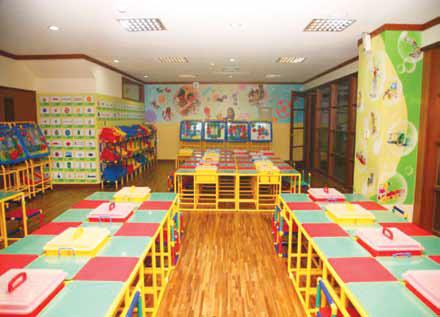
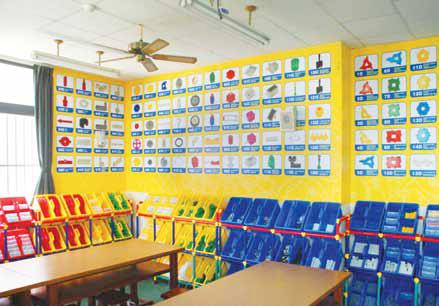
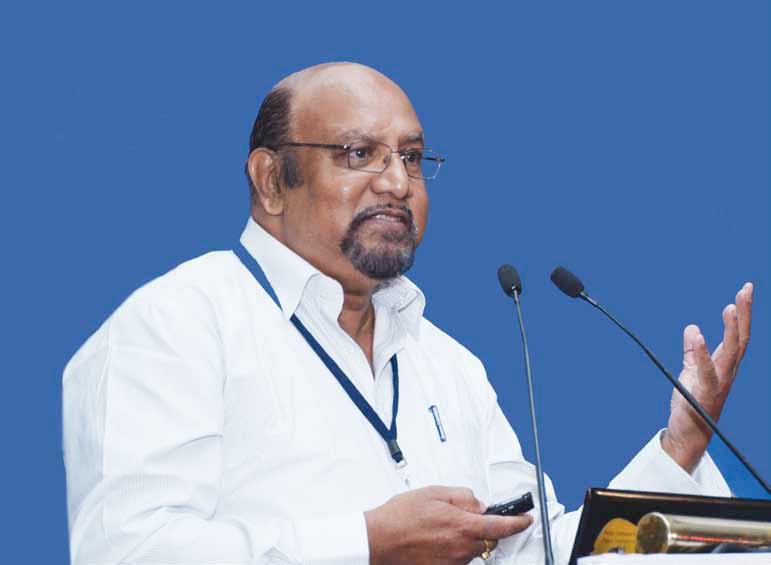
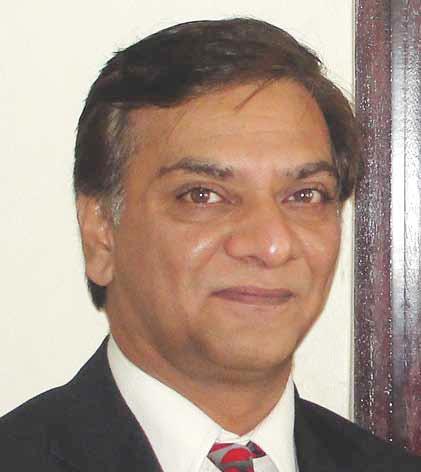 Pranab K Bose, Managing Director, Waterford Institute India, shares how Waterford Early Learning is empowering both the teachers and the students
Pranab K Bose, Managing Director, Waterford Institute India, shares how Waterford Early Learning is empowering both the teachers and the students
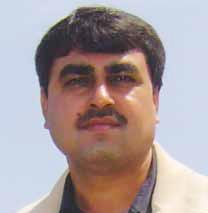
 By Sindu Aven, Head – Academic, Design & Content, Zee Learn
By Sindu Aven, Head – Academic, Design & Content, Zee Learn The focus in science education in schools has been evolving from the activityobservation- documentation framework to a more inquiry-based learning approach for developing scientific literacy. Instead of simply conducting a pre-identified activity, students should be encouraged to create explanations of the outcomes of an investigation by using evidence and logic. The future science labs will have a greater focus on the learning process along with conducting experiments. Online laboratories and experiments are useful in capturing the entire learning process without significant additional teacher intervention for individual students. Any number of students can dissect leaves and animals or mix hazardous chemical in online simula-tions without requiring a scaling up of the actual facilities and minimising system errors in experiments. Questionnaires with immediate feedback test their evidence and logic as they use pre-defined formats to build their reports. An online repository of experiments can be linked according to concepts so that students can perform related experiments or activities even if the rest of the class is not. Such relevant application assists students to move from guided activities to independent exploration and testing of laws and rules. The ubiquity of next generation computing devices has already transformed the experience of using computers has from click to touch. With the immediacy of touchscreens and the portability of tablet devices, discrete lab activities managed by lab instructors can be transformed into complete learning experiences leading to greater concept understanding with individual attention to all lab participants.
The focus in science education in schools has been evolving from the activityobservation- documentation framework to a more inquiry-based learning approach for developing scientific literacy. Instead of simply conducting a pre-identified activity, students should be encouraged to create explanations of the outcomes of an investigation by using evidence and logic. The future science labs will have a greater focus on the learning process along with conducting experiments. Online laboratories and experiments are useful in capturing the entire learning process without significant additional teacher intervention for individual students. Any number of students can dissect leaves and animals or mix hazardous chemical in online simula-tions without requiring a scaling up of the actual facilities and minimising system errors in experiments. Questionnaires with immediate feedback test their evidence and logic as they use pre-defined formats to build their reports. An online repository of experiments can be linked according to concepts so that students can perform related experiments or activities even if the rest of the class is not. Such relevant application assists students to move from guided activities to independent exploration and testing of laws and rules. The ubiquity of next generation computing devices has already transformed the experience of using computers has from click to touch. With the immediacy of touchscreens and the portability of tablet devices, discrete lab activities managed by lab instructors can be transformed into complete learning experiences leading to greater concept understanding with individual attention to all lab participants. In Mathematics, the use of technology can transform the learning experience as well. The CBSE manual on Mathematics lab shows how simple paper and charts can be used for introducing object-based application of mathematical principles and application of geometry in real life. However, using the many available software and simulators we can make our Math labs truly futuristic. Free and open source software like GeoGebra offers online activities that join geometry, algebra, tables, graphing, statistics and calculus. There are other geometry, algebra and graphing software that can be leveraged for greater application of mathematical principles. Integration of Mathematics and subjects like graphic design and music should be explored to make the Math lab an experimental one. An effective mix of computer-based applications and hand-held objects in Math labs can increase the areas of application immensely without requiring considerable expenses. Networking with experts and practitioners online can augment the expertise of laboratory instructors and it will also allow them to explore the application of Mathematics principles in various fields.
In Mathematics, the use of technology can transform the learning experience as well. The CBSE manual on Mathematics lab shows how simple paper and charts can be used for introducing object-based application of mathematical principles and application of geometry in real life. However, using the many available software and simulators we can make our Math labs truly futuristic. Free and open source software like GeoGebra offers online activities that join geometry, algebra, tables, graphing, statistics and calculus. There are other geometry, algebra and graphing software that can be leveraged for greater application of mathematical principles. Integration of Mathematics and subjects like graphic design and music should be explored to make the Math lab an experimental one. An effective mix of computer-based applications and hand-held objects in Math labs can increase the areas of application immensely without requiring considerable expenses. Networking with experts and practitioners online can augment the expertise of laboratory instructors and it will also allow them to explore the application of Mathematics principles in various fields.
 We can have quality institutions only if we have deregulation and giving the institutions better autonomy and more flexibility, says Prashant Bhalla, Chairman, Manav Rachna Educational Institutions
We can have quality institutions only if we have deregulation and giving the institutions better autonomy and more flexibility, says Prashant Bhalla, Chairman, Manav Rachna Educational Institutions
 Math Lab at Algar Public School, Tuticorin
Math Lab at Algar Public School, Tuticorin











